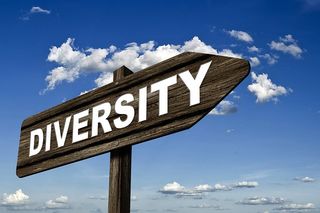
Bias
Why Did Diversity Become a Bad Word?
The benefits of diversity for everyone are overlooked.
Posted December 20, 2017

“Diversity” is one of the seven words the Trump administration banned for use by the Centers for Disease Control (CDC). But the Trump administration is not the only group that is uncomfortable with diversity. Some universities and businesses have replaced the term diversity with terms such as “inclusion” and “equity." Some people are more comfortable with these terms.
Diversity is defined as differences between groups. For example, Asian Americans may be different from White Americans because of the languages they speak, the priority they put on their family, and how important being Asian is to them. Diversity is also differences within a group. Not all Asian Americans speak the same Asian language, prioritize their family, or see being Asian as important.
Why do people resist diversity? There are three main reasons:
- Colorblindness. Some people believe that differences are not important. Seeing differences could be construed as bad or even racist. But colorblindness is associated with increased racial prejudice, racial anger, and racial fear.
- Cultural inertia. Some people don’t want their culture to change. When majority groups don’t want to change, they expect minority groups to adapt to their culture. This way, the majority group doesn’t have to change.
- Zero sum gain. Some people believe that they will lose something if they include others who are different from themselves. Making a place for someone else is seen as taking a place from another person. Diversity is seen as harming those in power.
Critics of diversity contend that it only benefits minority groups. But research indicates that diversity actually benefits everyone. Groups that are not diverse risk being narrow-minded and overlooking important information. Having a variety of perspectives helps new ideas to develop.
Diversity has been found to improve the accuracy of jury statements and of trade market statements. It also leads to more thorough political discussion. Wages are higher in United States communities with more immigrants. Diversity harnesses the resources of all citizens of a society.
Diversity is not a bad word. It can create good for everyone.
References
Galinsky, A. D., Todd, A. R., Homan, A. C., Phillips, K. W., Apfelbaum, E. P., Sasaki, S. J., . . . Maddux, W. W. (2015). Maximizing the gains and minimizing the pains of diversity: A policy perspective. Perspectives on Psychological Science, 10, 742-748. doi: 10.1177/1745691615598513
Hall, G. C. N., Yip, T., & Zárate, M. A. (2016). On becoming multicultural in a monocultural research world: A conceptual approach to studying ethnocultural diversity. American Psychologist, 71, 40-51. doi: 10.1037/a0039734
Różycka-Tran, J., Boski, P., & Wojciszke, B. (2015). Belief in a Zero-Sum Game as a social axiom: A 37-nation study. Journal of Cross-Cultural Psychology, 46, 525-548. doi: 10.1177/0022022115572226
Zárate, M. A., Shaw, M., Marquez, J. A., & Biagas, D., Jr. (2012). Cultural inertia: The effects of cultural change on intergroup relations and the self-concept. Journal of Experimental Social Psychology, 48, 634-645. doi: 10.1016/j.jesp.2011.12.014

